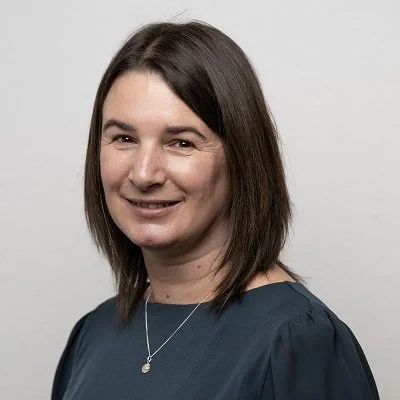From Surveys to Solutions: Unlocking Retrofit Potential at Scale
“What’s increasingly clear is that for the traditional buildings, we don’t need to start from scratch each time. With focused surveys to achieve the right data, experience and confidence, we can establish consistent early-stage engineering principles for these homes”.
I often hear people talk about the retrofit challenge as though it’s a mountain too steep to climb. But having spent decades immersed in the engineering detail of social housing and working closely with progressive clients across the local authority and wider construction sector, I believe we can flatten that curve. We just need to work smarter, and faster, together.
There’s no question that the race to meet 2030 net zero goals is intensifying. And rightly so. But for local authorities and housing associations who carry much of the responsibility, the scale of the task can feel overwhelming. In Edinburgh alone, the housing stock is evenly split between Council and housing associations, with much of this in urgent need of retrofit investment.
At Will Rudd, we’ve been proud to support the City of Edinburgh Council on a number of retrofit and thermal upgrade projects across the city. These projects often span mixed-tenure blocks, meaning we’re navigating the complexities of working with both social tenants and private owners. We continue to find enormous value in our partnerships across council departments and project teams and the level of ambition and commitment from everyone involved is both energising and inspiring.
What’s becoming increasingly clear, however, is that the scale and urgency of the retrofit challenge calls for us to evolve how we work. Many of the projects we’re supporting share similar characteristics, which presents a real opportunity: by building on our collective experience to establish more consistent early-stage approaches, we can accelerate delivery without compromising on quality or collaboration.
Low-rise blocks, typically ‘four in a block’ homes or terraced bungalows, tend to follow similar patterns of layout, structure and wear. We’ve seen the same issues emerge time and again through early-stage surveys and investigation work, which is one of our core strengths. These early steps are vital: they determine how deep the retrofit needs to go and what’s structurally possible.
What’s increasingly clear is that for the traditional buildings, we don’t need to start from scratch each time. With focused surveys to achieve the right data, experience and confidence, we can establish consistent early-stage engineering principles for these homes. We can then free up time and talent to focus on more complex projects like high-rise retrofits or buildings of non-traditional construction, which demand bespoke solutions and more involved coordination.
Imagine the impact: a shared baseline for low-rise interventions, agreed across partners, applied at scale. It wouldn’t just be quicker. It would make retrofit feel achievable for housing associations facing financial, logistical and political pressures from all sides.
Of course, this isn’t just a technical issue. There’s also the problem of resources. With a shortage of contractors and pressure on design teams, every delay compounds. When each new scheme has to start from zero, regardless of how familiar the building type may be, we miss the opportunity to scale what we already know works.
That’s why we believe a new way of working is essential. One that’s grounded in early-stage expertise, shared understanding and repeatable processes for the kinds of housing that make up so much of our cities. At Will Rudd, we’ve developed the tools, the insight and the collaborative approach to make this happen, and we’ve already seen the benefits in action. The early wins are encouraging but scaling them up will require continued investment, trust and alignment across disciplines.
There is still much to be done. But we see huge potential in the knowledge already built up across our sector. It’s time to embrace approaches that respect each building’s unique story while acknowledging that many challenges are shared.
Retrofit doesn’t need to be daunting. But it does need to be done differently. With clarity, consistency and commitment, we can get there.
Shirley Evatt is a Senior Associate at Will Rudd (Edinburgh)


